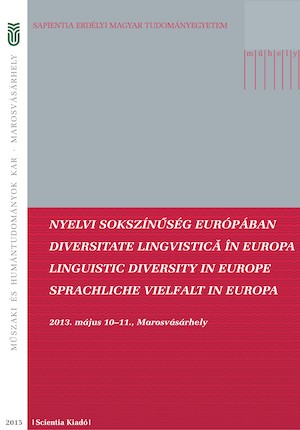‘ALL LANGUAGES ARE EQUAL BUT ONE IS MORE EQUAL THAN THE OTHERS’. ENGLISH VS. OTHER LANGUAGES
‘ALL LANGUAGES ARE EQUAL BUT ONE IS MORE EQUAL THAN THE OTHERS’. ENGLISH VS. OTHER LANGUAGES
Author(s): Andrea Papp
Subject(s): Sociolinguistics, Globalization
Published by: Scientia Kiadó
Keywords: lingua franca; English language; European Union; national languages;
Summary/Abstract: These days English is definitely the lingua franca of the world. How come? When did it start? Is it good to have one common language vs. national languages? Why English and not, say, Esperanto or German? Will English sooner or later substitute all languages? Will English deteriorate if there are so many different speakers? Will English be developed into two separate languages, i.e. the English spoken by the natives and the English spoken by the rest of the world? Can we already speak about a European English? Is G. B. Shaw right saying: “We (the British and Americans) are two countries separated by a common language”? So, how many English do we have then? Do we have to “fight” against English dominance or do we have to accept it? These are very difficult and at the same time very significant questions nowadays. Plurilingualism is emphasized all the time. In the European Union, every single document has to be translated into the languages of the member states, but still English is the prevailing language. Even in countries like Hungary almost all applications have to be handed in English as well. Can we consider it as the sign of getting more and more international and at the same time losing our national identity? If the national language is relegated to the background, the same will happen to the national identity and this can lead to a dull unified world which is absolutely against the “more than English” idea. The presentation tries to find answers to the above questions and takes a stand for multilingualism (as the saying goes: “You are as many men as many languages you speak.”), but it does not promise to find the philosophers’ stone.
- Page Range: 205-209
- Page Count: 5
- Publication Year: 2015
- Language: English
- Content File-PDF

